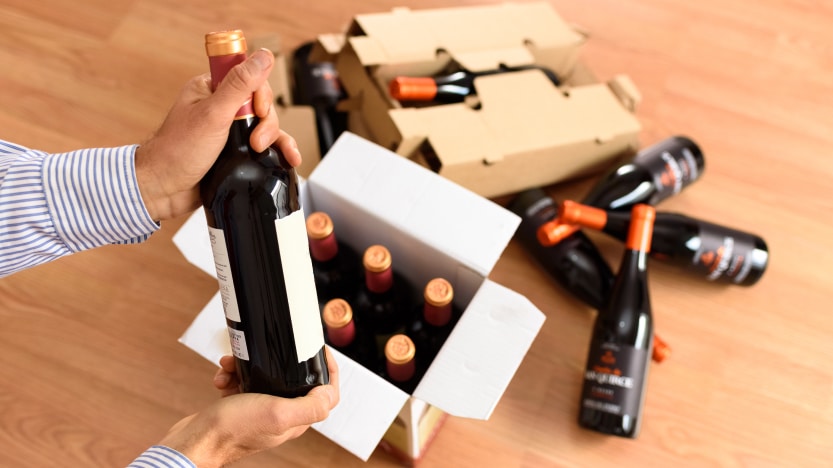The landscape of interstate liquor shipping is a complex tapestry woven with a patchwork of regulations, restrictions, and permissions that vary from state to state. As the demand for direct-to-consumer (DtC) shipments of alcohol grows, it becomes imperative for producers, retailers, and consumers to understand the nuanced rules governing these transactions.
In this article, we will explore which states allow liquor to be shipped directly to consumers, the limitations and challenges faced by the alcohol shipping industry, and how businesses and enthusiasts can navigate this intricate regulatory framework.
The Growth of Direct-to-Consumer Alcohol Shipping
The direct-to-consumer shipping model for alcohol has experienced significant growth in recent years. The DtC wine channel alone surpassed the $4 billion per year mark, showcasing a shift in consumer preferences towards the convenience of having their favorite spirits delivered to their doorsteps. Craft beer enthusiasts, in particular, have shown a strong inclination toward ordering their preferred brews directly, with a staggering 92% expressing interest in this mode of purchase.
Understanding the Limitations of Liquor Shipping
While the demand for DtC alcohol shipments is on the rise, not every state in the United States allows for the direct shipping of alcoholic beverages. The limitations facing the DtC alcohol shipping industry are multifaceted and can be categorized by the type of alcohol being shipped.
DtC Wine Shipping
- Virtually every state and Washington, D.C., allows for DtC wine shipping.
- Exceptions include Mississippi and Utah, where DtC wine shipping is not permitted.
- Delaware and Rhode Island have stringent limitations on DtC wine shipping, making it crucial for businesses and consumers to understand the specific rules in these states.
DtC Beer Shipping
- DtC beer shipping is not as widespread, with the majority of states prohibiting this form of shipment.
- States that do not allow beer to be shipped directly to consumers encompass a wide range, including Alabama, Arizona, California, Florida, Georgia, Kansas, Mississippi, New York, Texas, and many more.
- The extensive list of states with restrictions on DtC beer shipping highlights the challenges faced by craft beer enthusiasts seeking convenient access to their favorite brews.
DtC Liquor Shipping
- The landscape for DtC liquor shipping is even more restrictive, with only seven states and the District of Columbia permitting this mode of shipment.
- Prohibited states include Alabama, Arizona, California, Colorado, Delaware, Florida, Georgia, Idaho, Illinois, Indiana, Iowa, Kansas, Louisiana, Maryland, Massachusetts, Michigan, Minnesota, Mississippi, Missouri, Montana, Nevada, New Jersey, New Mexico, New York, North Carolina, Ohio, Oklahoma, Oregon, Pennsylvania, South Carolina, South Dakota, Tennessee, Texas, Utah, Vermont, Virginia, Washington, West Virginia, Wisconsin, and Wyoming.
- The limited number of states allowing DtC liquor shipping emphasizes the need for businesses to carefully navigate the regulatory landscape to meet consumer demands while ensuring compliance.
DtC Cider Shipping
- Cider shipping regulations vary, with some states categorizing it as wine, others as beer, and some defining it as a separate category.
- States that prohibit the shipping of cider include Delaware, Mississippi, Rhode Island, South Dakota, Tennessee, and Utah, underlining the challenges specific to this category.
Liquor Shipping Regulations
Understanding which states allow liquor to be shipped is just the first step. Navigating the regulatory maze requires a comprehensive approach that considers state-specific nuances, legal requirements, and compliance with evolving laws. Here are some key strategies for businesses and consumers to navigate the complexities of DtC alcohol shipping:
Research State-Specific Regulations
Conduct thorough research on the regulations specific to each state involved in the shipping process. Regulations may vary not only in permissibility but also in licensing requirements, labeling specifications, and other crucial details.
Stay Informed About Changes
Alcohol shipping laws are not static and can change over time. Staying informed about any updates or modifications to regulations is crucial for compliance. Subscribing to industry newsletters, participating in forums, and regularly checking official state websites can help keep stakeholders informed.
Choose Reputable Carriers
Selecting reputable carriers experienced in alcohol shipping is essential. Major carriers such as FedEx, UPS, and DHL are known to allow liquor shipping with certain restrictions. However, it is imperative to review and comply with each carrier’s specific guidelines to ensure smooth transactions.
Choose Reputable Carriers
Selecting reputable carriers experienced in alcohol shipping is essential. Major carriers such as FedEx, UPS, and DHL are known to allow liquor shipping with certain restrictions. However, it is imperative to review and comply with each carrier’s specific guidelines to ensure smooth transactions.
Adhere to Packaging and Labeling Requirements
Proper packaging is critical for the safe transportation of alcohol. Use recommended materials to protect bottles from damage and leaks. Additionally, ensure compliance with labeling requirements, including details such as alcohol content, type of alcohol, and any other information mandated by state laws.
Adhere to Packaging and Labeling Requirements
Proper packaging is critical for the safe transportation of alcohol. Use recommended materials to protect bottles from damage and leaks. Additionally, ensure compliance with labeling requirements, including details such as alcohol content, type of alcohol, and any other information mandated by state laws.
Age Verification Procedures
DtC alcohol shipments typically require age verification upon delivery. Familiarize yourself with the age verification procedures of the chosen carrier and ensure that recipients are of legal drinking age.
Engage with Industry Campaigns
If dissatisfied with the current DtC restrictions in a particular state, consider engaging with grassroots campaigns and industry guilds focused on advocating for more favorable regulations. Collaborative efforts can contribute to positive changes in the regulatory landscape.
Carriers Who Allow Liquor Shipping
Three major carriers—FedEx, UPS, and DHL—currently permit liquor shipping. However, it’s important to note that none of these carriers authorize consumer-to-consumer alcohol shipping. UPS, in particular, does not facilitate any form of direct-to-consumer alcohol delivery, even for business shippers.
If you plan to ship liquor directly to consumers, partnering with FedEx is likely your best option. Nevertheless, it’s crucial to be aware that FedEx maintains strict policies regarding who can ship alcohol, where it can be delivered, and the packaging requirements.
DHL, like FedEx, allows alcohol shipping, but it comes with stringent requirements. While FedEx specializes in domestic alcohol shipping, DHL extends its services to international liquor shipping. Businesses and individuals seeking to ship alcohol should carefully review and adhere to the specific guidelines set forth by these carriers to ensure compliance with their policies and regulations.
Final Note
The DtC alcohol shipping is marked by both opportunities and challenges. As the demand for convenient and direct access to alcoholic beverages continues to rise, stakeholders in the industry must navigate the intricate web of regulations governing interstate liquor shipments. Understanding which states allow liquor to be shipped is fundamental, but it is equally crucial to stay informed, comply with state-specific regulations, and advocate for positive changes when necessary.
By adopting a proactive and informed approach, businesses and consumers can contribute to the growth of the DtC alcohol shipping industry while ensuring legal compliance and consumer safety.

I’m Tammy Waller, a supply chain and logistics specialist with over 10 years of expertise. I’ve been an author and SFL employee for over 10 years.
As an author, I’ve been able to teach others. I love guiding users through supply chain and logistics operations.
I have substantial experience managing logistics operations, supply chain management, transportation, inventory management, and warehousing in shipping-moving and logistic services. I’ve worked on many worldwide logistics and supply chain projects, honing my abilities in negotiating rates, scheduling shipments, and managing vendors.



